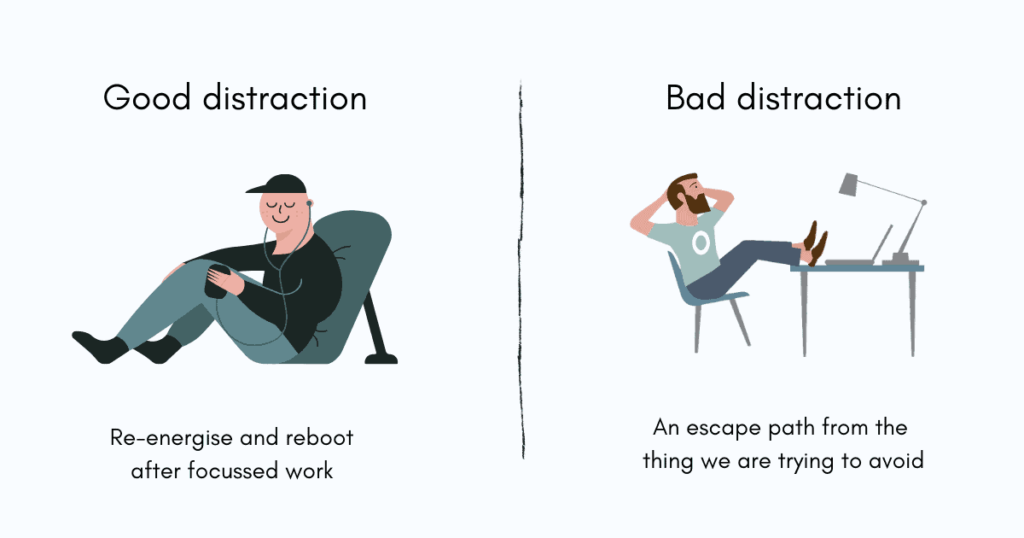Time management is a vital skill for everyone, but it holds particular significance for teenagers juggling school, extracurricular activities, part-time jobs, and social lives. Effective time management can lead to academic success, reduced stress, and a more balanced life. In this article, we will explore various tips and strategies to help busy teens manage their time efficiently.

Understanding Time Management
What is Time Management
Time management refers to the process of organizing and planning how to divide your time between different activities. It involves setting priorities, creating schedules, and sticking to them to achieve your goals efficiently.
Why Time Management is Crucial for Teens

For teenagers, mastering time management is crucial. It can help improve academic performance, provide more time for hobbies and relaxation, and reduce stress levels. By managing time effectively, teens can strike a balance between schoolwork, extracurricular activities, and social life.
Identifying Priorities
Setting Priorities: Academic vs. Personal Life
The first step in managing time effectively is identifying what is most important. For teens, academics often take precedence, but personal life, including hobbies, sports, and social activities, is equally important. Learning to prioritize helps in ensuring that essential tasks are completed without neglecting personal interests.
Creating a Priority List
Create a priority list by categorizing tasks based on their importance and deadlines. Use a system like the Eisenhower Matrix to classify tasks into four categories: urgent and important, important but not urgent, urgent but not important, and neither urgent nor important. This helps in focusing on what truly matters.
Creating a Schedule
Benefits of Having a Schedule

A well-structured schedule is a roadmap to successful time management. It helps in organizing daily activities, reducing procrastination, and ensuring that all tasks are completed on time. Schedules also provide a clear overview of free time available for leisure and relaxation.
Steps to Create an Effective Schedule
1. List all tasks and activities.
2. Allocate specific time slots for each task.
3. Prioritize tasks based on importance and deadlines.
4. Include short breaks to avoid burnout.
5. Review and adjust the schedule regularly.
Using Digital Tools for Scheduling
There are numerous digital tools and apps available that can assist in scheduling and time management. Apps like Google Calendar, Todoist, and Trello are popular choices that help in organizing tasks and setting reminders.
Setting Realistic Goals
Importance of Goal Setting
Setting goals provides direction and motivation. Realistic goals help in maintaining focus and tracking progress, which is crucial for effective time management.
How to Set SMART Goals
SMART goals are Specific, Measurable, Achievable, Relevant, and Time-bound. For instance, instead of setting a vague goal like “study more,” a SMART goal would be “study math for one hour every day after school.”
Examples of Realistic Goals for Teens
– Completing homework assignments daily.
– Participating in one extracurricular activity each semester.
– Allocating 30 minutes each day for physical exercise.
Avoiding Procrastination
Common Causes of Procrastination

Procrastination often stems from a lack of motivation, fear of failure, or being overwhelmed by tasks. Identifying the root cause is the first step in overcoming it.
Strategies to Overcome Procrastination
Breaking tasks into smaller, manageable parts can make them seem less daunting. Setting specific deadlines, using timers (like the Pomodoro Technique), and rewarding yourself after completing tasks can also help in reducing procrastination.
The Role of Discipline and Motivation
Maintaining discipline and staying motivated are key to managing time effectively. Self-discipline involves sticking to your schedule and resisting the urge to procrastinate. Finding personal motivations, such as long-term goals or rewards, can also help in maintaining focus.
Balancing School and Extracurricular Activities
Managing Academic Responsibilities

Academic responsibilities should be a top priority. Creating a dedicated study schedule, completing assignments on time, and preparing for exams are essential. Balancing these tasks with extracurricular activities can be challenging but is achievable with proper planning.
Scheduling Time for Hobbies and Sports
Extracurricular activities are important for personal development and provide a necessary break from academic pressures. Allocate specific time slots for hobbies, sports, and other interests to ensure a balanced lifestyle.
Benefits of a Balanced Life
A well-balanced life leads to better mental and physical health. It helps in reducing stress, improving academic performance, and ensuring overall well-being. Engaging in various activities also promotes the development of time management skills.
Effective Study Techniques
Study Environment and Its Importance
Creating a conducive study environment is crucial for concentration and productivity. Choose a quiet, well-lit area free from distractions to maximize study efficiency.
Different Study Methods
Different study methods work for different individuals. Some popular techniques include active recall, spaced repetition, and the Feynman technique. Experiment with various methods to find what works best for you.
Tips for Concentration and Focus
To enhance concentration, break study sessions into manageable chunks, take regular breaks, and avoid multitasking. Using tools like noise-canceling headphones or background music can also help in maintaining focus.
Time Management Tools and Apps
Top Time Management Apps for Teens
Several apps can assist teens in managing their time effectively. Popular ones include:
– Google Calendar: For scheduling and reminders.
– Todolist: For task management.
– Trello: For organizing projects and tasks.
How to Use These Tools Effectively
To use these tools effectively, set clear goals, prioritize tasks, and regularly update your schedules. Utilize features like reminders, deadlines, and task lists to stay on track.
Comparing Digital vs. Traditional Planning
While digital tools offer convenience and flexibility, traditional methods like paper planners and to-do lists can also be effective. Choose the method that best suits your preferences and lifestyle.
Learning to Say No

Importance of Setting Boundaries
Setting boundaries is essential for maintaining a balanced life. Learning to say no to additional tasks or commitments can prevent overloading and ensure you have time for important activities.
How to Politely Decline Extra Tasks
Politely declining extra tasks involves being honest and respectful. Explain your current commitments and express your willingness to help at a later time if possible.
Prioritizing Your Well-being
Your well-being should always come first. Prioritize activities that contribute to your physical and mental health, and don’t hesitate to take breaks when needed.
Handling Distractions
Identifying Major Distractions

Identifying major distractions, such as social media, phone notifications, or noisy environments, is the first step in managing them.
Techniques to Minimize Distractions
Techniques to minimize distractions include setting specific times for checking your phone, using apps that block distracting websites, and creating a quiet study space.
Creating a Distraction-Free Zone
A distraction-free zone is crucial for productivity. This can be achieved by organizing your workspace, removing unnecessary items, and setting clear boundaries with others about your study time.
Self-Care and Time Management
The Role of Self-Care in Time Management
Self-care plays a vital role in effective time management. Taking care of your physical and mental health ensures you have the energy and focus needed to manage your time effectively.
Incorporating Breaks and Leisure Time
Regular breaks and leisure time are essential for maintaining productivity and avoiding burnout. Schedule short breaks during study sessions and allocate time for activities you enjoy.
Managing Stress and Avoiding Burnout
Stress management techniques, such as deep breathing, meditation, and regular exercise, can help in avoiding burnout. Ensuring you have a balanced schedule that includes downtime is crucial.
Seeking Help When Needed
Recognizing When You Need Help
Recognizing when you need help is important. If you’re feeling overwhelmed or unable to manage your time effectively, it’s okay to seek assistance.
Resources Available for Time Management
There are various resources available, including time management workshops, online courses, and books. Additionally, talking to teachers, counselors, or parents can provide valuable support.
Talking to Teachers and Parents
Teachers and parents can offer guidance and help you develop better time management strategies. Don’t hesitate to reach out to them if you’re struggling.
Evaluating Your Progress
How to Review Your Time Management Skills
Regularly reviewing your time management skills helps in identifying areas for improvement. Reflect on what worked well and what didn’t, and adjust your strategies accordingly.
Adjusting Your Strategies as Needed
Flexibility is key to effective time management. Be open to adjusting your schedule and strategies based on your progress and changing priorities.
Celebrating Your Successes
Celebrate your successes, no matter how small. Recognizing your achievements boosts motivation and reinforces positive habits.
Conclusion
Managing time effectively is a crucial skill for busy teens. By setting priorities, creating schedules, avoiding procrastination, and balancing various activities, teens can achieve their goals and enjoy a well-rounded life. Remember, time management is an ongoing process that requires continuous effort and adjustment.
FAQs
How can teens balance part-time jobs and school?
Balancing part-time jobs and school requires careful planning and prioritization. Create a schedule that allocates specific times for work, study, and leisure. Communicate with your employer about your availability to ensure your job doesn’t interfere with your academic responsibilities.
What should I do if my schedule is disrupted?
If your schedule is disrupted, assess the situation and make necessary adjustments. Prioritize urgent tasks and reschedule less important ones. Stay flexible and be prepared to adapt to unexpected changes.
How much time should be allocated for studying?
The amount of time allocated for studying varies based on individual needs and academic demands. A general guideline is to spend 1-2 hours studying for every hour spent in class. Adjust this based on your personal learning pace and workload.
Are there any offline tools for time management?
Yes, there are several offline tools for time management, such as paper planners, to-do lists, and wall calendars. These traditional methods can be just as effective as digital tools, depending on your preference.
How can I motivate myself to stick to my schedule?
Motivating yourself to stick to your schedule involves setting clear goals, rewarding yourself for completing tasks, and finding personal incentives. Visualizing the benefits of staying on track and maintaining a positive mindset can also help in staying motivated.



